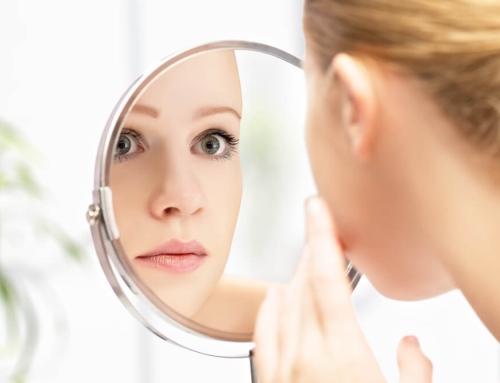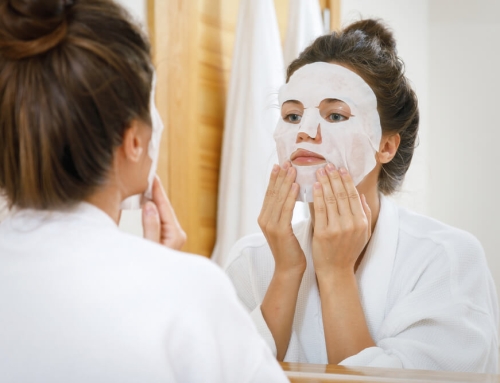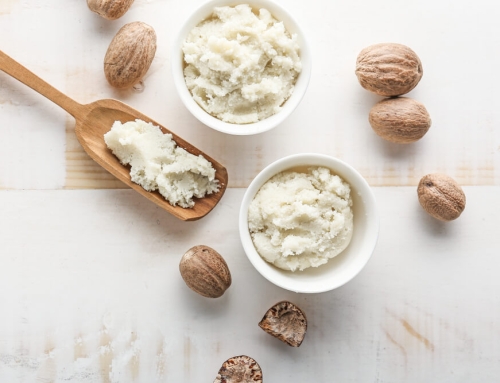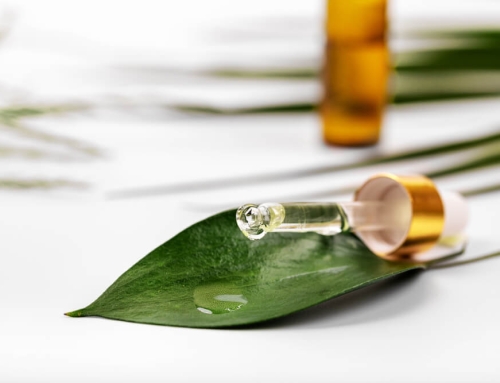Did you know that your skin functions differently at night, compared to during the day?
During the day, your skin cells work hard to protect themselves from environmental damage, whether this may be from the sun, from pollution, or anything else. However, once you go to sleep at night, your skin cells can then focus on healing and multiplying, which is exactly what you need them to do in order to maintain a healthy complexion.
Night time is also when your skin produces a significant amount of its collagen and elastin – two proteins that are key in keeping your skin tight, smooth and wrinkle-free.
Of course, your skin will work at all of these tasks whether you use a night cream or not. However, by nourishing your skin with a night cream, especially one containing some of the following ingredients, you will be able to support your skin’s functions at night, encouraging your skin cells to work even more efficiently.
Peptides
As mentioned above, one of the key roles that your skin cells perform at night is the creation of collagen and elastin. Both of these proteins act as the foundation, or building blocks, for your skin, giving your skin its volume and elasticity. While your body naturally produces plenty of these proteins while it is young, production rates decline with age, leading to fine lines, wrinkles and sagging skin.
So, how do peptides help?
Well, peptides are basically short chains of amino acids, and amino acids are what the skin uses to build protein fibers. By providing your skin with more peptides, it then has more material when it comes to creating collagen and elastin.
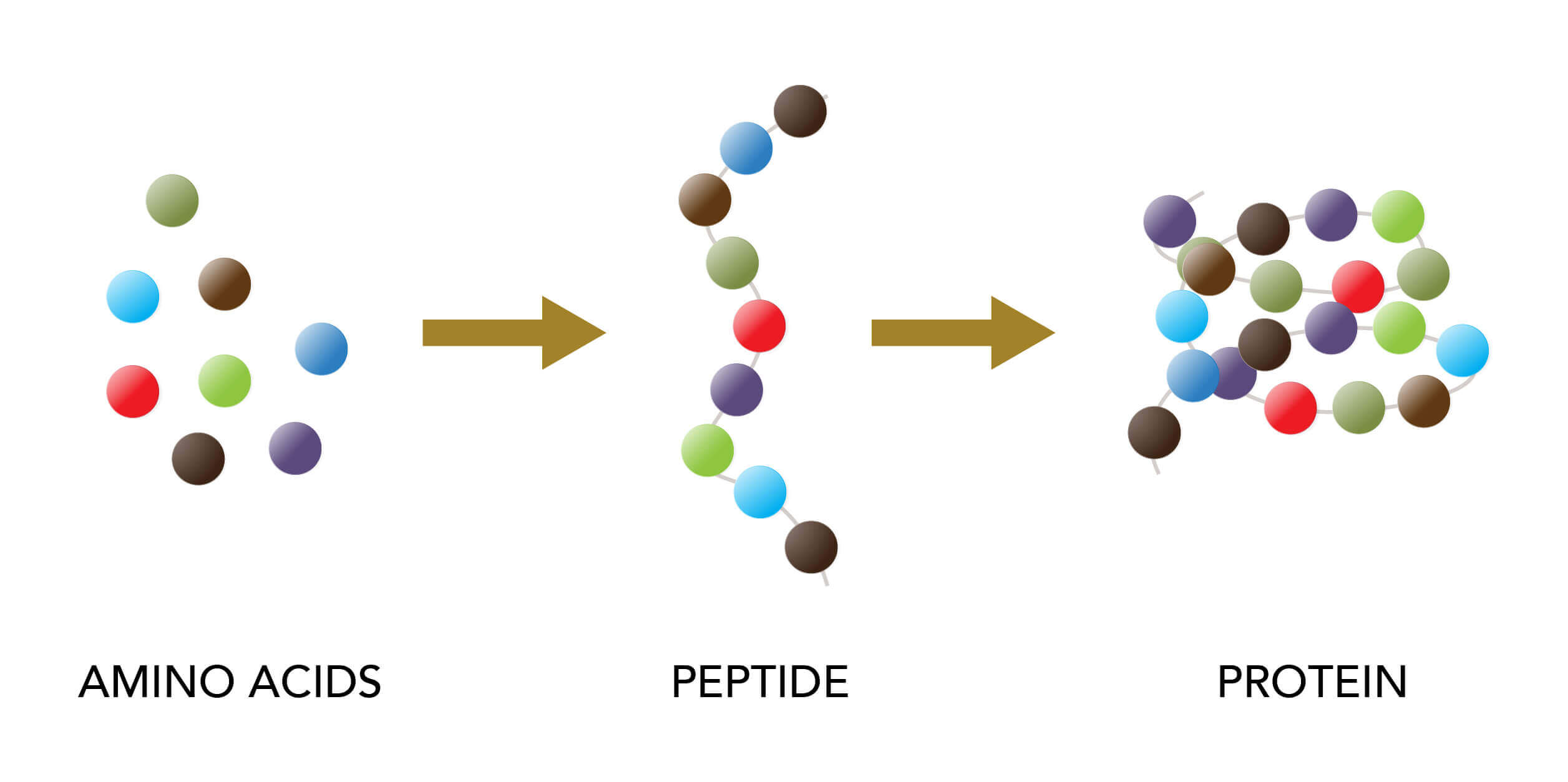
To make matters a little more complicated, there are several different peptides out there, and each one will work in its own unique way. Fortunately, the many different peptides available can be split into a few categories:
- Signalling peptides – these send messages to your skin cells, telling them to act in the way that a younger skin cell would act. Popular signalling peptides include Palmitoyl Oligopeptide and Palmitoyl Tripeptide-38
- Neuropeptides – these relax the muscles underneath the skin, instantly smoothing away expression lines. Popular neuropeptides include Acetyl Hexapeptide-8 and Acetyl Hexapeptide-30
- Carrier peptides – these deliver important trace minerals to skin cells. The most popular (as well as the most researched) carrier peptide would be copper peptides
- Enzyme inhibitor peptides – these prevent certain enzymes from causing harm to the skin by inhibiting their activity. For example, some peptides are able to inhibit the enzyme that would have otherwise broken down the skin’s collagen and elastin. Popular enzyme inhibitor peptides include Tripeptide-1 and Tripeptide-10
Vitamin A
Next up is one of the industry’s most revered skincare ingredients – vitamin A.
What’s so great about vitamin A?
The fact that it is such a multi-functional ingredient and is able to help the skin in several different ways, such as:
- Boosts collagen and elastin production, therefore giving the skin a smoother, firmer and tighter feel
- Minimizes the appearance of fine lines and wrinkles
- Lights discoloration thanks to its mild exfoliating effect
- Keeps the pores clear to prevent acne breakouts
- Improves the shape and size of pores
Again, vitamin A is available in several different forms. The most potent require a prescription, but even over-the-counter derivatives can really trigger some huge improvements in the skin. When it comes to OTC vitamin A, your main options are:
- Retinol
- Retinyl palmitate
These two tend to be the most popular because they are so effective. Although retinol is stronger, this does mean that side effects are more common, so pick your version of vitamin A based on your skin type.
Of course, if you’re able to find a product that combines both retinol and retinyl palmitate, you will likely experience results much faster. If this sounds appealing to you, take a look at the OROGOLD 24K Multi-Vitamin Night Nourishment + Retinol. In addition to containing both retinol and retinyl palmitate, this potent formula is jam-packed with botanical extracts that will support your skin while you sleep.
Since most forms of vitamin A degrade when exposed to sunlight, this is an ingredient best used at night instead of the day.
Ceramides
Ceramides are fat molecules that are a type of fatty acid, or lipid. They are naturally found in the skin, most notably in the skin’s outer layer, with about 50% of this consisting of ceramides.
Wondering what ceramides do for the skin?
They basically form a waxy barrier over the top of the skin’s surface. Ceramides, combined with other fatty acids, literally bond the skin together, giving it a smooth and soft finish. The protective layer that they create helps to keep impurities out of the skin, while preventing the skin’s moisture from evaporating into the air.
However, just like with many of the other compounds that the skin naturally produces, ceramide production declines with age, leaving the skin looking dry and dull.
Using a night cream that contains ceramides will help to boost this back up, strengthening your skin’s outer layer. In addition to doing this, ceramides will also:
- Reduce skin irritation and promote healing
- Treat eczema, with those suffering from this skin condition naturally having a lower ceramide level to begin with
- Treat dryness
- Reverse the symptoms of aging
Just about everyone would benefit from the use of ceramides, no matter your skin type.
Plant Oils
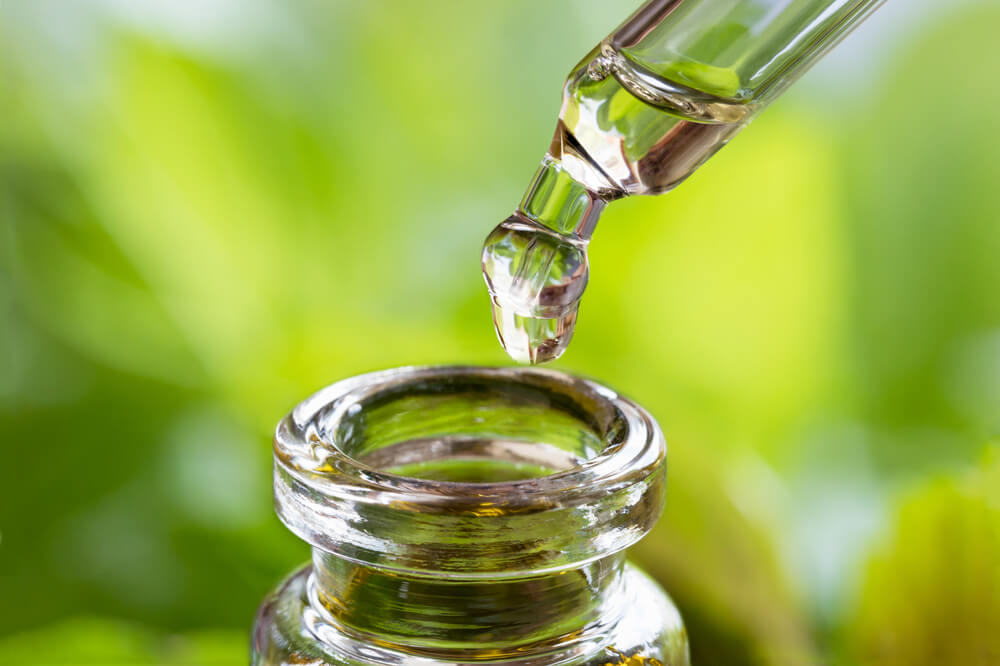
With the demand for natural ingredients increasing, plant oils have become an extremely popular skincare ingredient, and for good reason too. Not only will these oils help to form a protective barrier over the surface of your skin while you sleep, but they will also support your skin with their many antioxidants.
Just like the other ingredients on this list, certain plant oils can be used on all skin types.
Now, you might be thinking…
Why would I want to use a plant oil on my skin if my skin is already oily?
Well, certain oils can actually cut back on the amount of sebum your skin produces, meaning that your skin will become naturally less oily over time.
Jojoba oil is the perfect example of this – its molecular structure is so similar to the oil that the skin naturally produces itself, tricking the skin into thinking that the jojoba oil you have applied is actually its own sebum. This then causes it to slow its sebum production right down, saving you from oily skin and breakouts.
To sum things up for those with oily skin…
Make sure that the plant oils used in your night cream are non-comedogenic, which means that they will not clog up your pores and cause your skin to become even oilier.
For all other skin types, here are a few plant oils that would work beautifully in a night cream:
- Avocado oil – a great source of vitamin E, fatty acids and antioxidants, while also being a powerful anti-inflammatory
- Argan oil – a popular oil in hair care, argan oil is also highly nourishing when used on the skin, and is a fantastic source of vitamin E
- Rosehip oil – one of the best oils for keeping the skin hydrated, due to its high fatty acid content. It is also a natural source of vitamin A and antioxidants, giving it anti-aging effects too
A night cream that incorporates a few different plant oils would be ideal, as this will enable you to reap the individual benefits of each. However, make sure that the cream does not leave your skin feeling greasy or sticky afterwards, which is common when it comes to low quality products that make use of plant oils.
Vitamin C
Just like vitamin A, vitamin C is an ingredient that can break down when it is exposed to sunlight. Many people have also found that vitamin C makes their skin much more sensitive to the sun, not only increasing their chances of experiencing a sun burn, but also leaving them more vulnerable to developing skin cancer.
This might put you off using vitamin C, but, so long as you use the ingredient at night, you really have nothing to worry about. In fact, vitamin C is one of the most effective skincare ingredients out there, and can perform a number of different tasks, such as:
- Acts as a powerful antioxidant that neutralizes free radicals and prevents them from accelerating the aging process
- Reverses DNA damage in skin cells
- Reduces discoloration by preventing excess melanin production
- Brightens the skin
- Reduces inflammation
- Increases the production of collagen and elastin
- Increases the skin’s natural production of ceramides
- Helps to prevent acne breakouts
There isn’t much that vitamin C cannot do!
Since vitamin C is not naturally produced by the body, this is an ingredient that you need to be topically nourishing your skin with. Yes, eating plenty of vitamin C-rich food sources will help too, but nothing quite compares to delivering the ingredient directly to your skin cells through a topical product.
Green Tea Extract
You probably already know that green tea is considered to be quite the superfood when it comes to healthy eating, but did you know that green tea is also an incredible ingredient to be using topically on your skin?
Green tea is packed with polyphenols, and these have a number of properties, including:
- Antioxidant
- Antibacterial
- Anticancer
- Antiviral
- Anti-inflammatory
The fact that green tea is also a source of caffeine is an added bonus, with caffeine able to do everything from reduce puffiness to perk up the skin.
Just like all other antioxidants out there, green tea is even more effective when you combine it with other antioxidants, which is exactly what you will find with the OROGOLD 24K Overnight Cream. In addition to containing green tea extract, this nourishing night cream is also formulated with:
- Sweet almond, jojoba and safflower oil – see plant oil section above
- Vitamin A and two forms of vitamin E
- Shea butter
- Aloe and chamomile extracts
- Sodium hyaluronate
- Allantoin
This is a night cream that really does give your skin all it needs to function optimally at night. While it may be packed with a variety of moisturizing ingredients, the cream does not leave the skin feeling heavy or greasy, making it the perfect addition to anyone’s night time skincare routine.
Niacinamide
Niacinamide is a form of vitamin B3. Compared to some of the other vitamins commonly used in skincare, such as A and C, vitamin B3 is relatively unheard of, but is one that would really benefit you when used in a night cream.
Wondering how exactly niacinamide would benefit your skin?
Well, remember how ceramides are essential for keeping your skin’s outer layer strong and healthy? Niacinamide encourages ceramide production in the skin, helping to strengthen and build that protective layer from within.
Niacinamide is also able to:
- Minimize the appearance of pores, while reducing pore size in the long term
- Help to build keratin in the skin, which improves firmness and smoothness
- Reduce inflammation and minimize redness
- Regulate the skin’s natural production of oil, slowing down sebaceous glands that are producing an excess amount of sebum. This makes niacinamide a great acne treatment
- Protects against UV rays
- Treats hyperpigmentation
- Increases collagen production
If you decide to look for a night cream that contains niacinamide, try to find one that is also formulated with zinc, copper or hyaluronic acid.
Why?
Because studies suggest that those ingredients work in a complementary way with niacinamide, enhancing the effects of each other.
There are so many different night creams out there, making it no surprise that many struggle when it comes to choosing one that would truly benefit their skin. Well, now that you know which ingredients you should be looking out for, the task will become much easier, ensuring that the night cream you pick provides your skin with all it needs while you sleep.


